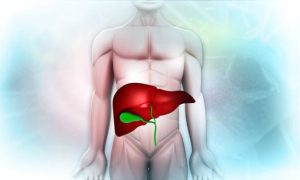
Bad breath, or halitosis, is an unpleasant odor emanating from the mouth. It can be temporary or chronic and can impact social interactions and self-esteem.
Causes:
- Poor Oral Hygiene: Inadequate brushing and flossing allow food particles to remain in the mouth, leading to bacteria growth and odor.
- Dental Issues: Cavities, gum disease, and oral infections can contribute to bad breath.
- Food Choices: Strong-smelling foods like garlic, onions, and certain spices can temporarily affect breath.
- Dry Mouth: Reduced saliva production (xerostomia) can lead to bad breath since saliva helps cleanse the mouth.
- Tobacco Products: Smoking or chewing tobacco contributes to bad breath and causes other oral health problems.
- Medical Conditions: Certain illnesses, like sinus infections, respiratory infections, diabetes, liver disease, and kidney disease, can cause bad breath.
- Medications: Some medications can cause dry mouth or release chemicals that contribute to odor.
- Mouth Breathing: Breathing through the mouth, especially during sleep, can lead to dry mouth and bad breath.
- Gastroesophageal Reflux Disease (GERD): Acid reflux can cause a sour or foul breath due to stomach acid entering the esophagus.
Risk Factors:
- Poor Oral Hygiene: Not brushing or flossing regularly increases the risk.
- Dental Problems: Existing cavities or gum disease can contribute.
- Smoking and Tobacco Use: Increases risk and worsens breath.
- Certain Diets: Low-carb or ketogenic diets may lead to “ketone breath.”
- Dehydration: Not drinking enough water can reduce saliva production.
- Chronic Health Issues: Conditions affecting the respiratory system, liver, or kidneys.
Symptoms:
- Unpleasant Odor: Noticeable bad smell from the mouth.
- Taste Changes: A persistent bad taste in the mouth.
- Dry Mouth: A feeling of dryness or stickiness in the mouth.
- Coated Tongue: A white or yellow coating on the tongue may accompany bad breath.
- Gum Issues: Signs of gum disease, such as bleeding or swollen gums.
Prevention:
- Maintain Good Oral Hygiene: Brush teeth at least twice a day and floss daily.
- Regular Dental Check-ups: Visit the dentist regularly for cleanings and check-ups.
- Stay Hydrated: Drink plenty of water to help maintain saliva production.
- Avoid Strong-Smelling Foods: Limit consumption of foods known to cause bad breath.
- Quit Smoking: Avoid tobacco products to improve breath and overall oral health.
- Use Mouthwash: Antimicrobial or breath-freshening mouthwash can help reduce odor.
- Chew Sugar-Free Gum: Helps stimulate saliva flow and freshen breath.
- Maintain a Balanced Diet: Include fruits and vegetables that can help cleanse the mouth.
Diagnosis:
- Dental Examination: A dentist will assess oral health and identify potential causes.
- Medical History Review: Discussing health history and symptoms with a healthcare provider can help identify underlying causes.
- Breath Testing: Some clinics may use specialized devices to measure volatile sulfur compounds (VSCs) that contribute to bad breath.
- Saliva Tests: Testing saliva for bacteria or other issues can help diagnose dry mouth or other conditions.
Home Remedies:
- Salt Water Rinse: Rinsing with salt water can help reduce bacteria and inflammation.
- Baking Soda: Rinsing with a baking soda solution can help neutralize odors.
- Apple Cider Vinegar: Diluted apple cider vinegar can act as a natural mouthwash and help with odor.
- Herbs: Chewing on fresh herbs like parsley, mint, or basil can temporarily freshen breath.
- Green Tea: Drinking green tea may help reduce bacteria in the mouth due to its antioxidants.
- Probiotics: Consuming probiotic-rich foods like yogurt may help balance oral bacteria.
Treatment:
- Improved Oral Hygiene: A consistent oral care routine is essential.
- Treating Dental Problems: Addressing cavities, gum disease, or oral infections as recommended by a dentist.
- Medications: If caused by an underlying medical condition, appropriate medications may be prescribed.
- Saliva Substitutes: For those with dry mouth, saliva substitutes or stimulants may help.
- Dietary Changes: Adjusting diet to minimize odor-causing foods.
Precautions:
- Regular Dental Visits: Maintain routine dental check-ups to monitor oral health.
- Avoid Alcohol-Based Mouthwashes: They can contribute to dry mouth.
- Monitor Medications: Discuss any medications that may contribute to bad breath with a healthcare provider.
- Consult a Doctor: If bad breath persists despite good oral hygiene, seek medical advice for potential underlying conditions.
Self-Care:
- Maintain Oral Hygiene: Brush and floss regularly and use mouthwash.
- Stay Hydrated: Drink sufficient water throughout the day.
- Avoid Tobacco and Strong Odors: Stay clear of tobacco products and minimize strong-smelling foods.
- Chew Sugar-Free Gum: Use gum to stimulate saliva and freshen breath.
- Manage Health Conditions: Follow treatment plans for any chronic health issues that may affect oral health.
Disclaimer:
Bad breath can be a sign of an underlying health issue, including dental problems or systemic conditions. While home remedies and self-care practices can help improve breath temporarily, they do not replace professional dental or medical care. If bad breath persists, worsens, or is accompanied by other symptoms, consult a healthcare provider for an accurate diagnosis and appropriate treatment.








